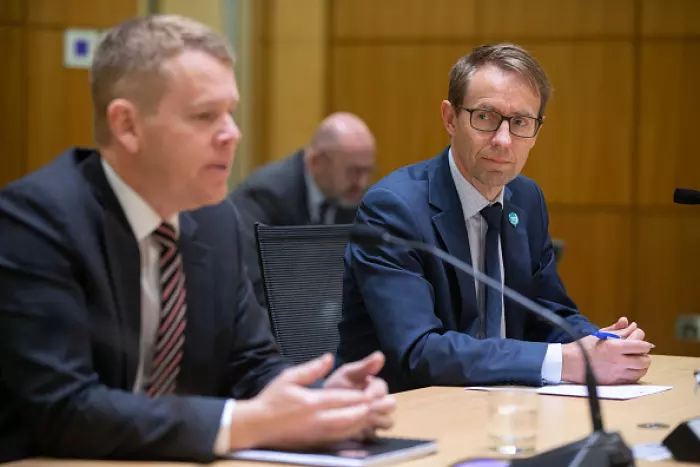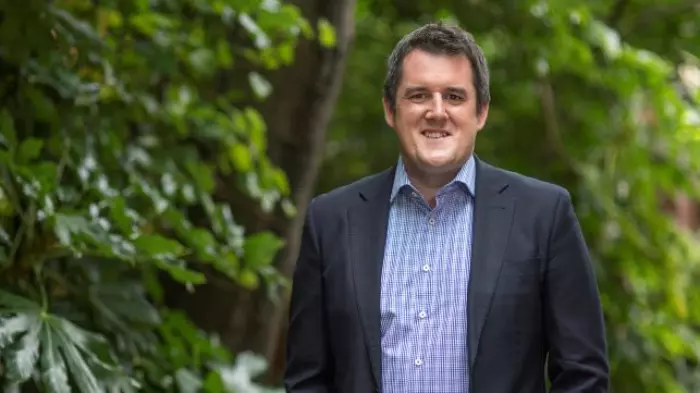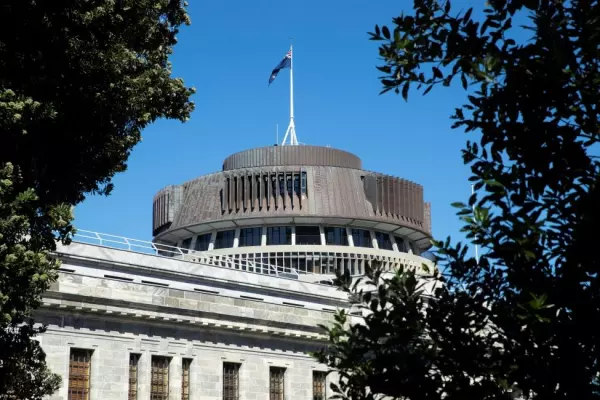Public servants are confident in their own and their organisation's political neutrality.
But they're less certain about another core pillar of the public service – the requirement to give free and frank advice.
In answers from 771 public servants in the “Working in the Public Service” survey done for BusinessDesk and the Institute of Public Administration NZ by the research agency Perceptive, the importance of free and frank advice is clearly embraced.
But its practice is variable and the more experienced a public servant is, the more likely they are to express concerns about the extent of either self-censorship or ministers being unwilling to hear advice that doesn’t fit their political preferences.
“Agencies are very risk-averse and tell ministers what they want to hear” is typical of the hundreds of comments received in response to the questionnaire, which probed attitudes towards and knowledge of core principles that guide the public service.
Another suggested that “there is a lot more second-guessing of how advice is going to ‘land’ than used to be the case”, risking advice that becomes “muted and bland”.
Most respondents (74%) feel that their leaders model the principle of free and frank advice but are somewhat less confident in doing so themselves – only two-thirds think free and frank advice can be given without worrying about how popular it would be within their own organisation or with the government.
About one third of respondents (half of those who had an opinion) thought the public service is less free and frank than it used to be.
Those respondents with long tenures in the public service were less likely to agree that it was less free and frank than it used to be than those with a career under a decade.
The extent to which respondents felt comfortable giving free and frank advice tends to depend on their level of seniority.
About 30% of tier 3-to-5 employees say they worried about how popular their advice would be within their organisation, while senior managers were less concerned.
The boss matters
Many suggested that the extent of any pressure not to give free and frank advice sometimes reflected a particular administration, individual ministers, or the interventions of political advisers in ministers’ offices.
“I do not believe it is possible to draw a blanket conclusion about the political neutrality etc of the public service,” said one respondent to the survey. “There will always be exemplars and always outliers.”
Others pointed to the tendency for ministerial willingness to hear alternative advice to harden the longer they were in office.
“Working in the public service in the third term of the National government, most advice was self-censored,” wrote one respondent. “We know what would rile ministers and what they wanted to hear.
“Under the [2017] coalition government, after nine years of National, some senior public servants struggled to pivot to be more open-minded, even though ministers, I think, were genuinely asking us for our ideas (the stuff we’d had to sit on for nine years)."
Others, however, saw a pattern in the current government of becoming less interested in unwelcome advice.
A few comments picked out concerns about “left-liberal world views” being “overrepresented”.
“This government talked a strong game about openness, but ministers haven’t led it,” said one commenter.
“So, instead, everything is being diluted to meet the transparency requirements (eg. proactive release of cabinet papers) which is undermining free and frank advice.”
Others suggested that controversial advice is often delivered “face to face” or in phone calls “to ensure there is nothing discoverable in terms of the direction by seniors and/or the minister”.
Comments were made anonymously and BusinessDesk chose not to use comments that could identify individual departments, but one respondent said: “I personally have been told several times that I have created ‘a problem’ when I have provided objective, balanced, evidence-based comments or advice.”
In principle, free and frank advice should be written down.
In an interview with BusinessDesk, public service commissioner Peter Hughes conceded that while the major state sector reforms of the late 1980s had given the bureaucracy a necessary shake-up at the time, some of the core values of public service had been eroded.
“We need to reassert them,” he said, pointing to the inclusion of free and frank advice and political neutrality as statutory principles in the Public Service Act reforms ushered in by public service minister Chris Hipkins in 2020.
“Do I think there’s a huge problem? No, I have no evidence of a huge problem,” Hughes said. Nor does he believe there was some “golden age of free and frank advice that we’ve lost”.
But “the context has shifted” to a more fast-paced environment, accelerated by factors such as digital technology, social media and round-the-clock media cycles.
“Free and frank advice – I see it happening – but it happens in different ways. It’s much more real-time, much more oral these days,” said Hughes.
However, the guidance to public servants remains that “if they’re giving free and frank advice orally, and it’s a significant matter … it should be written down”.
Massey University professor of political science Richard Shaw, who specialises in public service ethics, suggests that many of the answers to the Perceptive survey show a phenomenon where “some officials feel that civil service loyalty and support for the government of the day has come to require promiscuous partisanship amongst civil servants”.
Political advisers – a necessary evil?
Likewise, there are mixed reviews about the role of political advisers in ministers’ offices, who are not public servants.
Their contributions to policy development are recognised as valuable, and Shaw – who with Chris Eichbaum of Victoria University has studied political advisers since 2003 – saying there were “fewer references to this form of politicisation than I might have anticipated”.
About half of the people who responded to questions about advisers said "Don't know", reflecting that many public servants have no contact with ministers’ political advisers. Of those who did have a response, about half felt these advisers were a threat to the key principles of free and frank advice and of political neutrality in the public service.
However, some comments made a positive case for the role of political advisers.
“They can help with the load on [the] minister and provide valuable feedback to departments,” said one of the public servants responding to the Perceptive questionnaire.
“They can help us with understanding of context.”
Another wrote: “Political advisers who act within their mandate provide clarity about the line between partisan and non-partisan activity, assisting public servants to remain within their domain."
Said Shaw: “Politicisation is not simply something that is done to you. Plenty of the content in this survey suggests that it’s bubbling up from within departments and agencies” and can’t be blamed on ministerial influence.
Whether or not politicisation is “always the corrosive thing it is typically made out to be” needs debate, Shaw suggested.
“Political advisers perform a necessary role and, without this, there would be more politicisation of the public service,” wrote one public servant in the Perceptive survey.
Sometimes, the issue is the competence of an adviser who may be a confidant of a minister, thanks to previous experience together in other contexts.
“I’ve seen some well-intentioned but extremely unhelpful interventions by political advisers who may not be primarily politically motivated, but just inexperienced and hence inept,” said one commenter.
Political neutrality
A huge majority of respondents to the survey (97%) said they had a good understanding of what it meant to be a politically neutral public servant.
They were also confident that leadership in their organisation is politically neutral, with just 7% disagreeing with the statement, "the leadership in my organisation would act to prevent politicised advice or politically inappropriate actions by staff".
However, 28% of respondents agreed with the statement "the public service is less politically neutral than it used to be".
Senior public servants – those with a direct report to a chief executive or one report removed – were more likely to agree that political neutrality had worsened over time.
However, the small sample of senior respondents means this finding should be viewed with caution.
About the study
Our data collection relies significantly (with permission) on the approach and questions used by Chris Eichbaum and Richard Shaw in their 2017 work “Research on the influence of political staff in Ministerial and Prime Ministerial Offices and political neutrality in the New Zealand public service”.
Some questions follow the wording and methodology of previous work by Statistics NZ and the former State Services Commission.
Invitations to participate, with a link to an online questionnaire, were distributed on an anonymised basis in late September 2022 to individuals likely to be employees of central government in the databases of the Institute of Public Administration NZ and BusinessDesk.
Recipients were invited to complete the survey and to pass on the invitation to colleagues who work in central government.
Two reminder emails were sent over the next three weeks.
As a privacy measure, the questionnaires were not linked to individual email addresses, nor to the respondent’s employing agency.
As a result of this sample method, no weightings to the population of NZ public servants were applied, and the results should be interpreted in this context.
- Reporting by Nikitin Sallee, Pattrick Smellie, and Andy Fyers











